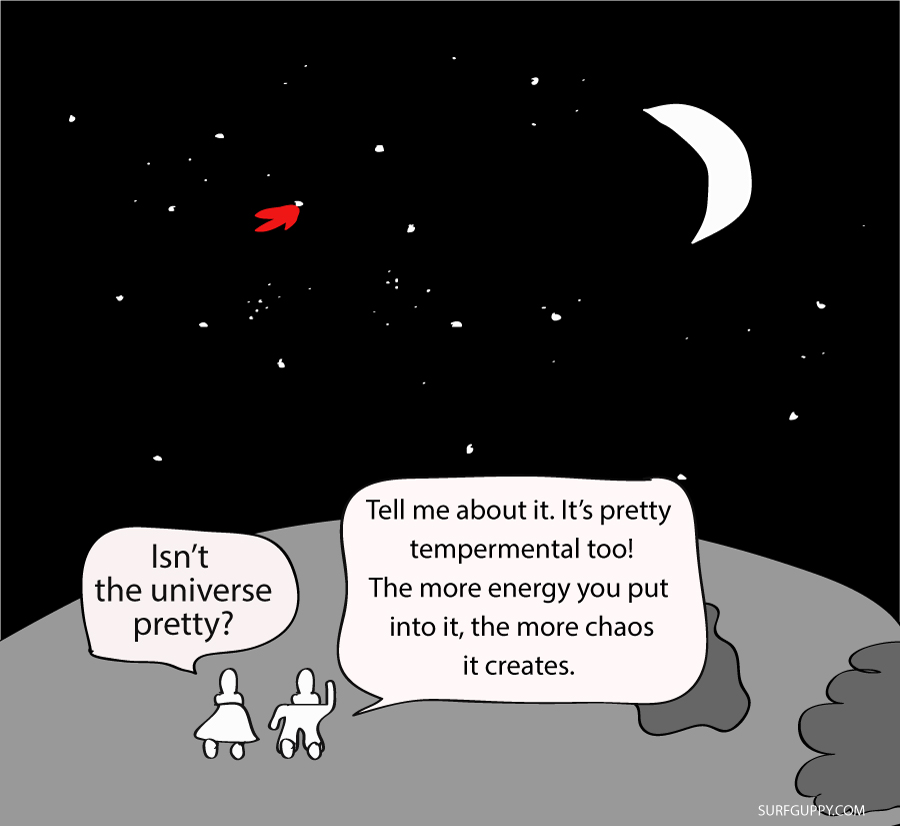

This heat, as a result of distribution into the universe, involves an increase in entropy that counteracts the decrease from the engine’s work. The reason is that some amount of heat from the engine releases into the universe (i.e. Despite this, heat engines still function spontaneously in the real world. This conversion involves an entropic decrease in the system since the disordered energy of heat becomes ordered motion. In general, a heat engine works by taking heat energy and converting it to work. Importantly, while the universe’s entropy must increase without exception, that of the system may decrease spontaneously.įor instance, take a heat engine. Thus, heat only flows from the hot metal to the cold, to allow the universe’s entropy to continue increasing. The entropic level of the system would decrease as heat becomes concentrated in the hot metal, but it would increase if the thermal energy evenly distributes throughout both metals. The Second Law explains why this does not occur. Why wouldn’t heat flow from the cold to the hot metal, further raising its temperature? Afterall, this move would still comply with the First Law, since no energy becomes created or destroyed. Any heat energy remains controlled as well, with certain cold pockets, like the refrigerator, and hot pockets, like the oven, with different temperatures that don’t spread to the rest of the house. Any mechanical energy of motion, such as water and gas moving through pipes, remains tightly controlled and directed. The mass that makes up the house is ordered and exact to form the walls and furniture. Low EntropyĪ system low in entropy involves ordered particles and directed motion. The letter “S” serves as the symbol for entropy.Īs we’ll find out in a later section, entropy has a lot of use for chemists and physicists in determining the spontaneity of a process. This means that as a system changes in entropy, the change only depends on the entropies of the initial and final states, rather than the sequence (“path”) taken between the states. Importantly, entropy is a state function, like temperature or pressure, as opposed to a path function, like heat or work. Topics Covered in Other ArticlesĮntropy is a measure of how dispersed and random the energy and mass of a system are distributed. The proteins can't be readily undenatured, even if you change the conditions to thermodynamically favor denaturation because, kinetically, the proteins can't find their way back to their undenatured state.Īnyways, let's suppose we have a "reversible reaction", $$\ce = 11$, the opposite would happen: decreased entropy of the universe in the forward direction, increased entropy of the universe in the reverse direction (again, until it reached equilibrium).In this article, we discover the meaning of entropy and its importance in thermodynamics, in both the universe and within a system. By contrast, an example of an irreversible reaction would be cooking an egg, which causes the proteins to denature.

I.e., one where you can adjust the relative concentration of products and reactants back and forth as you change conditions.


A reversible reaction is one that is kinetically reversible. First, a defintion of terms: The meaning of reversible in "reversible reaction" is different from the thermodynamic meaning of reversible.


 0 kommentar(er)
0 kommentar(er)
